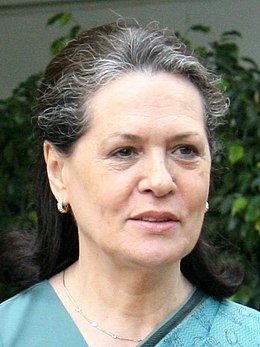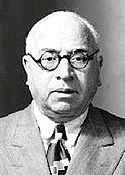
An election is a formal group decision-making process by which a population chooses an individual to hold public office. Elections have been the usual mechanism by which modern representative democracy has operated since the 17th century. Elections may fill offices in the legislature, sometimes in the executive and judiciary, and for regional and local government. This process is also used in many other private and business organizations, from clubs to voluntary associations and corporations.

The 1997 United Kingdom general election was held on Thursday 1 May 1997, five years after the previous general election on 9 April 1992, to elect 659 members to the British House of Commons. Under the leadership of Tony Blair, the Labour Party ended its eighteen-year spell in opposition and won the general election with a landslide victory, winning 418 seats, the most seats the party has ever held to date, and the highest proportion of seats held by any party in the post-war era. For the first time since 1931, the outgoing government lost more than half its parliamentary seats in an election.

The United States Electoral College is a body of electors established by the United States Constitution, constituted every four years for the sole purpose of electing the president and vice president of the United States. The Electoral College consists of 538 electors, and an absolute majority of 270 electoral votes is required to win an election. Pursuant to Article II, Section 1, Clause 2, the legislature of each state determines the manner by which its electors are chosen. Each state's number of electors is equal to the combined total of the state's membership in the Senate and House of Representatives; currently there are 100 senators and 435 representatives. Additionally, the Twenty-third Amendment provides that the District of Columbia (D.C.) is entitled to a number of electors no greater than that of the least populous state.

The Bharatiya Janata Party is one of the two major political parties in India, along with the Indian National Congress. As of 2018, it is the country's largest political party in terms of representation in the national parliament and state assemblies, and it is the world's largest party in terms of primary membership. BJP is a right-wing party, and its policy has historically reflected Hindu nationalist positions. It has close ideological and organisational links to the Rashtriya Swayamsevak Sangh (RSS).

Women's suffrage is the right of women to vote in elections. Beginning in the late 1800s, women worked for broad-based economic and political equality and for social reforms, and sought to change voting laws in order to allow them to vote. National and international organizations formed to coordinate efforts to gain voting rights, especially the International Woman Suffrage Alliance, and also worked for equal civil rights for women.

The Communist Party of India (CPI) is the oldest communist party in India. There are different views on exactly when it was founded. The date maintained as the foundation day by the CPI is 26 December 1925. The Communist Party of India (Marxist), which separated from the CPI in 1964 following an ideological rift between China and the Soviet Union, continues to claim having been founded in 1925.

Legislative elections were held in India in four phases between 20 April and 10 May 2004. Over 670 million people were eligible to vote, electing 543 members of the 14th Lok Sabha. The Lok Sabha, or "House of the People," is the directly elected lower house of the Parliament of India.
India is a federation with a parliamentary system governed under the Constitution of India, which defines the power distribution between the union, or central, government and the states.

The 2005 United Kingdom general election was held on Thursday 5 May 2005, to elect 646 members to the House of Commons. The Labour Party led by Tony Blair won its third consecutive victory, with Blair becoming the only Labour leader beside Harold Wilson to form three majority governments. However, its majority now stood at 66 seats compared to the 160-seat majority it had previously held. As of 2019, it remains the last general election victory for the Labour Party.

The 2010 United Kingdom general election was held on Thursday, 6 May 2010, with 45,597,461 registered voters entitled to vote to elect members to the House of Commons. The election took place in 650 constituencies across the United Kingdom under the first-past-the-post system. None of the parties achieved the 326 seats needed for an overall majority. The Conservative Party, led by David Cameron, won the largest number of votes and seats, but still fell 20 seats short. This resulted in a hung parliament where no party was able to command a majority in the House of Commons. This was only the second general election since the Second World War to return a hung parliament, the first being the February 1974 election. Unlike in 1974, the potential for a hung parliament had this time been widely considered and predicted, and both the country and politicians were better prepared for the constitutional process that would follow such a result. The coalition government that was subsequently formed was the first coalition in British history to eventuate directly from an election outcome. The hung parliament came about in spite of the Conservatives managing both a higher vote total and higher share of the vote than the previous Labour government had done in 2005, when it secured a comfortable majority.
An independent or nonpartisan politician is an individual politician not affiliated with any political party. There are numerous reasons why someone may stand for office as an independent.

India held general elections to the 15th Lok Sabha in five phases between 16 April 2009 and 13 May 2009. With an electorate of 714 million, it was the largest democratic election in the world till the Indian General Elections 2014 held from 7 April 2014.

The Indian general election, 2014 was held to constitute the 16th Lok Sabha, electing members of parliament for all 543 parliamentary constituencies. Running in nine phases from 7 April to 12 May 2014, it was the longest election in the country's history. According to the Election Commission of India, 814.5 million people were eligible to vote, with an increase of 100 million voters since the last general election in 2009, making it the largest ever election in the world. Around 23.1 million or 2.7% of the total eligible voters were aged 18–19 years. A total of 8,251 candidates contested for the 543 Lok Sabha seats. The average election turnout over all nine phases was around 66.38%, the highest ever in the history of Indian general elections.

The 2012 United States presidential election was the 57th quadrennial American presidential election, held on Tuesday, November 6, 2012. The Democratic nominee, President Barack Obama, and his running mate, Vice President Joe Biden, were elected to a second term. They defeated the Republican ticket of former Governor Mitt Romney of Massachusetts and Representative Paul Ryan of Wisconsin.

The 2016 United States presidential election was the 58th quadrennial American presidential election, held on Tuesday, November 8, 2016. The Republican ticket of businessman Donald Trump and Indiana Governor Mike Pence defeated the Democratic ticket of former Secretary of State Hillary Clinton and U.S. Senator from Virginia Tim Kaine, despite losing the popular vote. Trump took office as the 45th President, and Pence as the 48th Vice President, on January 20, 2017.

The 2019 Indian general election is scheduled to be held in seven phases from 11 April to 19 May 2019 to constitute the 17th Lok Sabha. The counting of votes will be conducted on 23 May, and on the same day the results will be declared.

The 2015 United Kingdom general election was held on 7 May 2015 to elect 650 members to the House of Commons. It was the first general election at the end of a fixed-term Parliament. Local elections took place in most areas on the same day.

The 2017 United Kingdom general election took place on Thursday 8 June 2017, having been called just under two months earlier by Prime Minister Theresa May on 18 April 2017 after it was discussed in cabinet. Each of the 650 constituencies elected one Member of Parliament (MP) to the House of Commons. The governing Conservative Party remained the largest single party in the House of Commons but lost its majority, resulting in the formation of a minority government with a confidence-and-supply arrangement with the Democratic Unionist Party (DUP) of Northern Ireland.

The Election Commission of India is an autonomous constitutional authority responsible for administering election processes in India. The body administers elections to the Lok Sabha and Rajya Sabha and state Legislative Assemblies and Legislative Council in India, and the offices of the President and Vice President in the country. The Election Commission operates under the authority of Constitution per Article 324, and subsequently enacted Representation of the People Act. The commission has the powers under the Constitution, to act in an appropriate manner when the enacted laws make insufficient provisions to deal with a given situation in the conduct of an election. Being a constitutional authority, Election Commission is amongst the few institutions which function with both autonomy and freedom, along with the country’s higher judiciary, the Union Public Service Commission and the Comptroller and Auditor General of India.















